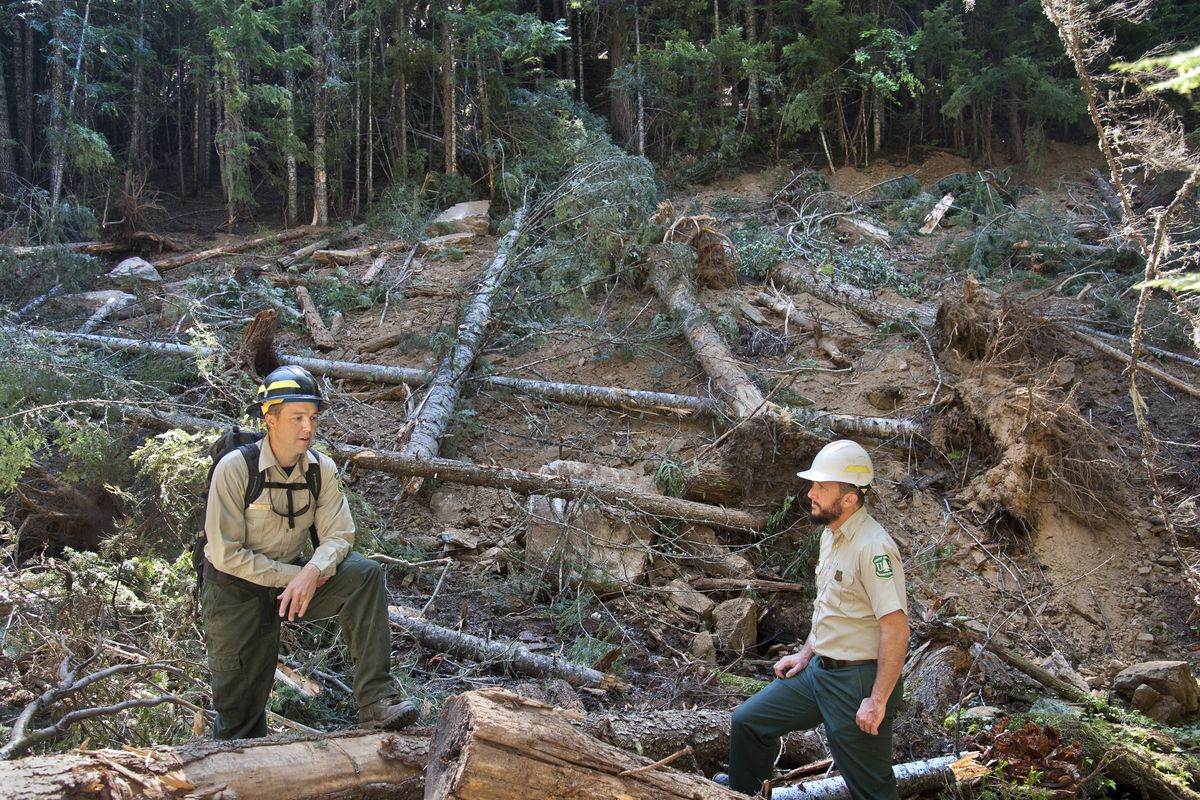Forest Service deconstructing roads in Little North Fork watershed with $1.8 allocation

Will Young looks for signs of washout as he tramps along an old U.S. Forest Service road.
It’s been years since logging trucks last lumbered down this dirt road, which gradually fades into an alder thicket. The road no longer serves either the timber industry or the public, but it’s still belching sediment into a nearby creek.
“You can see the erosion from the site,” said Young, an aquatics specialist for the Idaho Panhandle National Forests, pointing to deep gullies in the roadbed. “That’s what we’re after.”
An unexpected $1.8 million appropriation will help Forest Service officials improve water quality in the Little North Fork of the Coeur d’Alene River watershed, a popular recreation area northeast of Coeur d’Alene. The work targets eroding, impassible roads and plugged culverts.
The Little North Fork watershed supports populations of cutthroat trout, Idaho’s state fish. But many of the streams don’t meet state water quality standards for trout spawning or rearing.
Arresting the flow of sediment that clogs creeks and heats up water temperatures has been a priority in the Little North Fork for years, said Jason Kirchner, an Idaho Panhandle National Forests spokesman. In recent monitoring, a single road flushed 2.6 tons of sediment into a creek over the course of a year. But money for the Little North Fork work was limited.
That changed in January, when the forest was awarded the $1.8 million.
The money came from restoration of the agency’s “fire transfer” funds, Kirchner said. During expensive wildfire years – such as this one – national forests across the country have their budgets cut to pay for higher-than-expected firefighting costs. However, Congress sometimes restores part of that money, which goes to special agency projects. This year, the Little North Fork project was selected.
The project targets 34 square miles of the watershed. The work includes obliterating 82 miles of old logging roads.
The roads are the legacy of extensive timber harvests in the Little North Fork, but they’re overgrown and impassible. Few people would recognize them as roads, Kirchner said.
Last week, an excavator was taking out a road above Moose Creek in the Little North Fork drainage. The work looked messy: Uprooted trees and shrubs were scattered across the old road bed. Rocks and soil had been recontoured to match the hillside’s 30 degree slope.
“It looks pretty raw right now, but you come back next year, and it’ll be covered with vegetation,” Young said.
The site will be replanted in September. And some of the downed logs will eventually slide into the creek, providing structure for the channel and pools for fish habitat.
Not even a hint of the road will remain, Kirchner said.